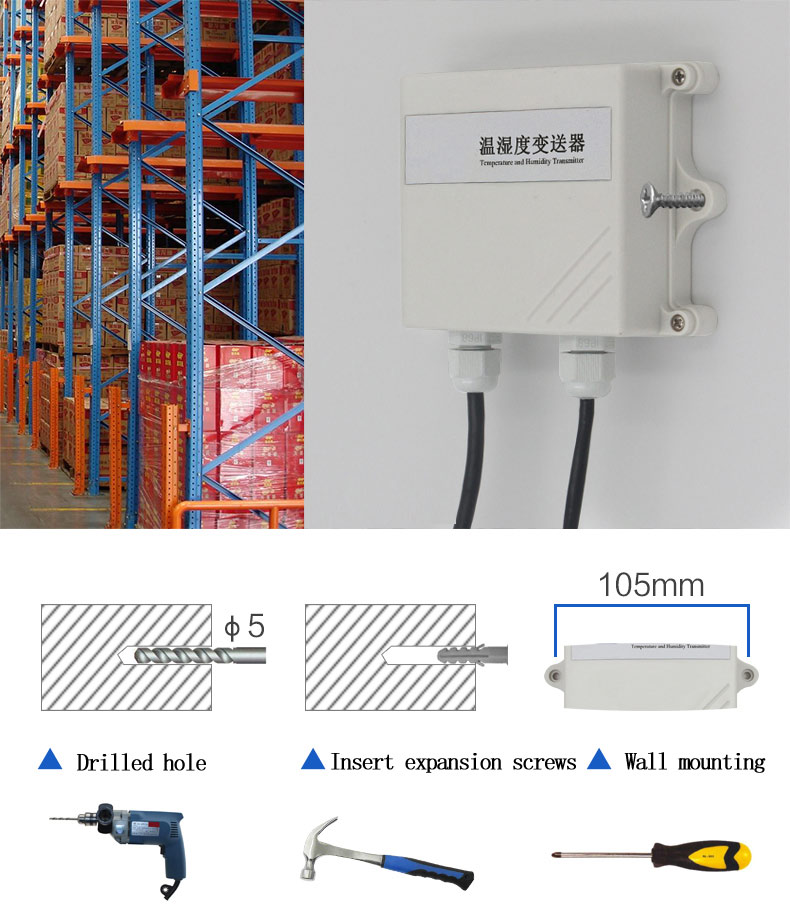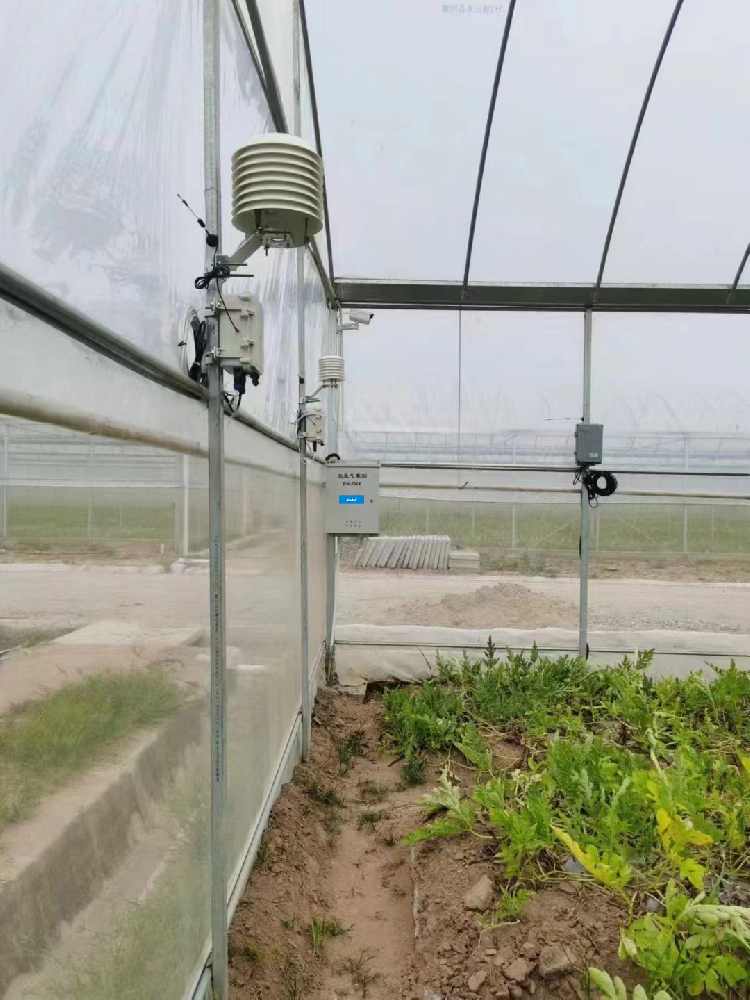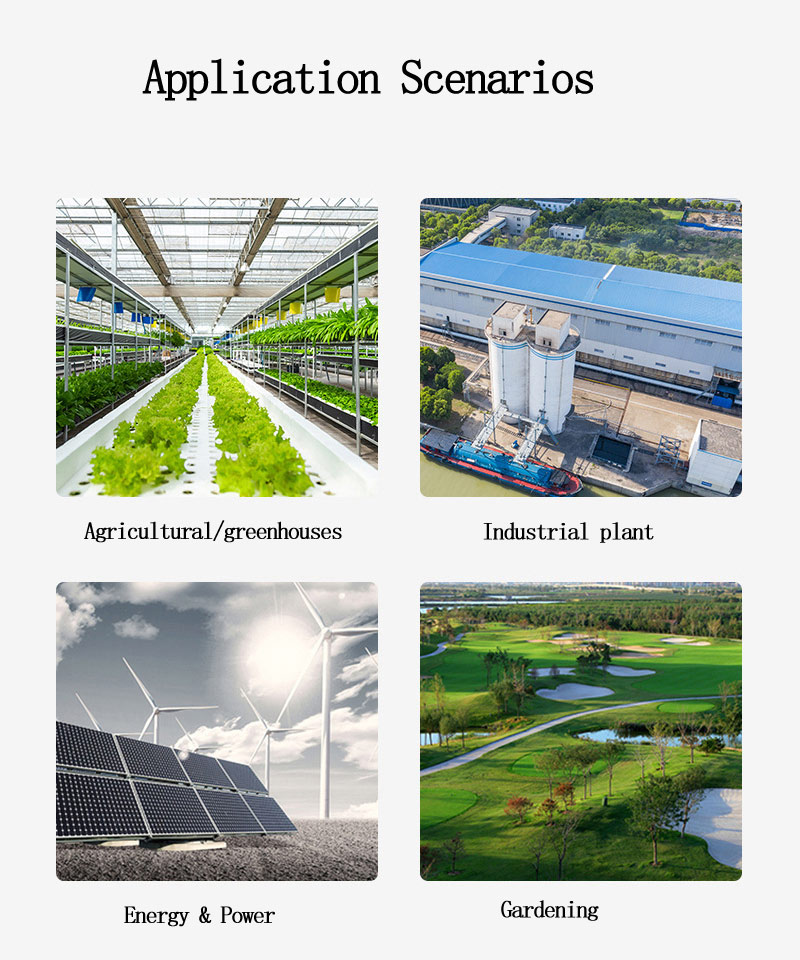

— Blogs —
—Products—
 Consumer hotline +8618073152920
Consumer hotline +8618073152920 WhatsApp:+8615367865107
Address:Room 102, District D, Houhu Industrial Park, Yuelu District, Changsha City, Hunan Province, China
Product knowledge
Time:2024-09-01 16:06:49 Popularity:1036
A greenhouse temperature sensor is a device specifically designed to monitor and measure the ambient temperature inside a greenhouse. It plays a vital role in facility-based agriculture by continuously monitoring temperature changes inside the greenhouse to ensure that crops are grown at optimum temperature conditions. Here are more details about greenhouse temperature sensors:
Temperature sensors are able to monitor the air and soil temperatures inside the greenhouse in real time, which is essential for regulating the greenhouse environment and optimising the growing conditions for crops.
With accurate temperature measurements, greenhouse managers can make timely adjustments to the heating or cooling system to maintain the temperature range required by the crop, thereby improving crop yield and quality.

Greenhouse temperature sensors are used in a wide range of applications in the agricultural sector. Their main function is to monitor temperature changes in the greenhouse in real time, providing growers with accurate environmental data to help optimise crop growing conditions and improve yield and quality. The following are the main application scenarios of greenhouse temperature sensors:
1. Temperature monitoring and regulation: greenhouse temperature sensors can monitor the temperature changes inside the greenhouse in real time and transmit the data to the control system. When the temperature exceeds the optimal range for crop growth, the control system can automatically start or shut down the corresponding regulation equipment, such as the heating system, ventilation system, or shading net, etc., in order to keep the temperature inside the greenhouse at a suitable level.
2. Early warning and alarm: when the temperature in the greenhouse shows abnormal fluctuations, such as a sharp rise or fall, the temperature sensor can quickly send out an early warning signal to remind the grower to take timely measures to prevent crop damage.
1. Crop growth cycle management: different crops have different temperature requirements at different growth stages. Greenhouse temperature sensors can help growers understand the current growth stage of the crop, and according to its temperature demand for precision management, such as adjusting the amount of irrigation, fertiliser, etc., in order to promote the healthy growth of crops.
2. Pest prevention: the occurrence of some pests and diseases is closely related to temperature. By monitoring temperature changes in the greenhouse in real time, growers can identify potential pest and disease risks in a timely manner and take appropriate preventive measures to reduce the impact of pests and diseases on crops.

1. Automated irrigation and fertilization: combined with other environmental parameter sensors such as soil moisture sensors, greenhouse temperature sensors can participate in the construction of automated irrigation and fertilization systems. When the temperature is suitable and the soil humidity is low, the system can automatically start the irrigation equipment for the crop to replenish water; at the same time, according to the crop growth requirements and temperature conditions, the system can also adjust the amount of fertiliser and fertiliser timing, in order to improve the efficiency of agricultural production.
2. Optimise energy use: By accurately controlling the temperature inside the greenhouse, the greenhouse temperature sensor helps to reduce unnecessary energy consumption. For example, at night or on cloudy days, the energy consumption of the heating system can be reduced by lowering the temperature inside the greenhouse; in the daytime when there is sufficient sunlight, the temperature inside the greenhouse can be lowered by adjusting the ventilation system and the sunshade netting to avoid excessive use of refrigeration equipment.

Other Application Scenarios
In addition to the above application scenarios, the greenhouse temperature sensor can also be combined with other agricultural Internet of Things devices, such as intelligent monitoring cameras, weather stations, etc., to jointly build a comprehensive management platform for intelligent agriculture. Through this platform, growers can understand the environmental conditions in the greenhouse in real time, crop growth and external weather conditions and other information, so as to make more scientific and reasonable agricultural management decisions.
In summary, greenhouse temperature sensors have a wide range of application prospects and important application value in the field of agriculture. With the continuous development of Internet of Things technology and artificial intelligence technology, the function of greenhouse temperature sensor will be more perfect, the performance will be more stable and reliable, and provide strong support for the sustainable development of modern agriculture.
NBL-W-LBTH-Atmosphere-temperature-humidity-and-pressure-sensor-instruction-manual-V4.0.pdf
NBL-W-WHT-Wall-Mounted-Temperature-Humidity-Sensors-Instruction-Manual.pdf
NBL-W-WHTP-Wall-Mounted-Temperature-Humidity-and-Pressure-Sensors.pdf
Prev:What is the use of meteorological thermometer?
Next:How to realise automatic irrigation through intelligent greenhouse monitoring system?
Related recommendations
Sensors & Weather Stations Catalog
Agriculture Sensors and Weather Stations Catalog-NiuBoL.pdf
Weather Stations Catalog-NiuBoL.pdf
Related products
 Combined air temperature and relative humidity sensor
Combined air temperature and relative humidity sensor Soil Moisture Temperature sensor for irrigation
Soil Moisture Temperature sensor for irrigation Soil pH sensor RS485 soil Testing instrument soil ph meter for agriculture
Soil pH sensor RS485 soil Testing instrument soil ph meter for agriculture Wind Speed sensor Output Modbus/RS485/Analog/0-5V/4-20mA
Wind Speed sensor Output Modbus/RS485/Analog/0-5V/4-20mA Tipping bucket rain gauge for weather monitoring auto rainfall sensor RS485/Outdoor/stainless steel
Tipping bucket rain gauge for weather monitoring auto rainfall sensor RS485/Outdoor/stainless steel Pyranometer Solar Radiation Sensor 4-20mA/RS485
Pyranometer Solar Radiation Sensor 4-20mA/RS485
Screenshot, WhatsApp to identify the QR code
WhatsApp number:+8615367865107
(Click on WhatsApp to copy and add friends)
